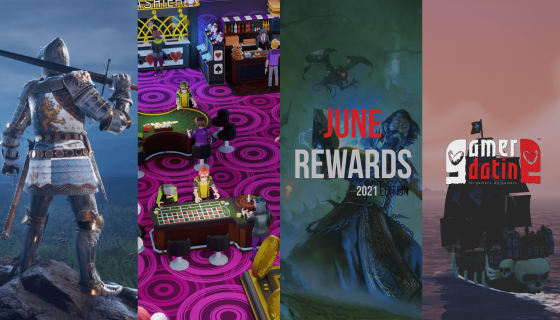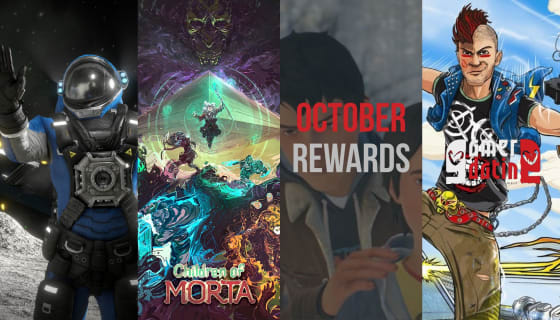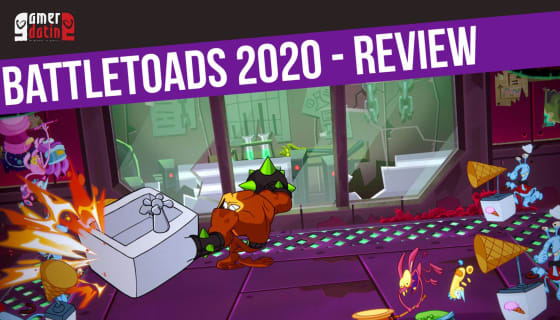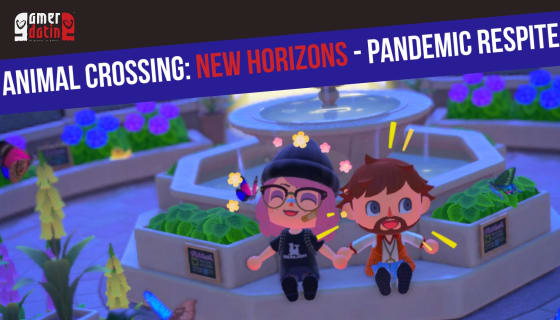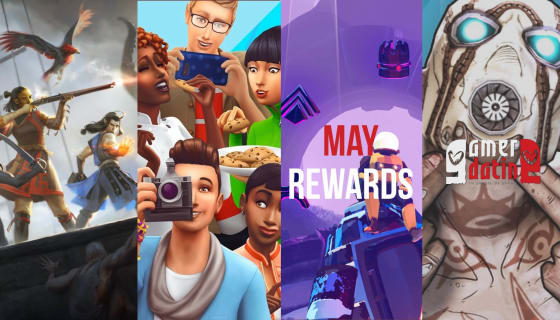Dopamine and Attachment Anxiety - How to avoid relationship Desert Bus.
Ah, that new relationship feeling, its like what you have with a new game, but way better. You have butterflies while chatting to them. You can’t wait until the next time you see them and can’t seem to hide your excitement when you do. They’re constantly on your mind and you never feel like you’ve had your fill. Its like when PubG came out, long before you met Fortnite or Battlefield 5, well... you know what I mean (Am I telling you to go back to PubG though? That's the meta statement - Not Ed).

What happened PubG? We were so good together…
Inevitably, after a few weeks or months, this feeling begins to fade away. Your partner doesn’t surprise you anymore: you feel like you know them inside out and you finish each other’s sentences. You should be happy. After all, this is what you’ve wanted all along; but you’re not. You bicker over small things and find yourself zoning out when they speak. You start to miss being single, free and making spur-of-the-moment decisions. Most of all, you feel bored and stagnant. You don’t necessarily want the relationship to end, but you can’t keep going like this. What’s gone wrong, and how can you fix it?
Looking back on the early days of the relationship, you probably remember all the good things: feeling excited and energized, going on amazing dates, the thrill of just pulling all-nighters on the PS4 together. Those feelings are caused by the combination of hormones and neurotransmitters flooding your brain when you feel attraction. The most important of these is dopamine, a neurotransmitter that is released when you do things that make you feel good, like spending the day with your new partner or sex. Dopamine creates that feeling of euphoria and energy you experience during a new relationship.
However, it’s not all fun and games. We tend to look back on the past with rose-tinted glasses, remembering ‘the good old days’ and forgetting the parts that weren’t so great. Apart from that feeling of euphoria, dopamine is also associated with the release of a stress hormone called norepinephrine. Norepinephrine is what makes you feel fidgety and tense when you’re anxious. It suppresses appetite and causes insomnia. Dopamine is also associated with addiction: the same pathways that light up when you’re in a new relationship are also at play when drug addicts take cocaine. That’s why you feel you’re never getting enough of your new partner.

Damn sorry Crash Bandicoot, no amount of modern rose tinted glasses can make up for me just not enjoying you anymore :S
In the long term, this heightened state of arousal isn’t sustainable and has to fade away eventually. If it didn’t, you’d be a walking ball of nerves, wasting away, sleep deprived and ‘overdosing’ on your partner at the expense of your other relationships. As you get to know your partner better and the relationship becomes more predictable, it also becomes more secure. You are comfortable in each others’ presence. Your heart no longer races and palms no longer sweat. You are moving out of the zone of overwhelming lust and attraction and working towards building attachment.
Attachment is what distinguishes happy long-term relationships from those frantic, exciting flings. It is mediated by a hormone called oxytocin, often known as the ‘love hormone’. Oxytocin’s purpose is to bond people together, whether parents and children, close friends or relationship partners. It is released during sex, cuddling and even breastfeeding. This is where another roadblock can stop you from settling into a happy and fulfilling long-term relationship. Each of us has an attachment style, developed by our parents’ responses to us as children. If, as a child, your parent reacted to your negative emotions with anger or rejection, you may have developed an avoidant attachment style. This means that you defend yourself against feelings of rejection by emotionally detaching yourself. You don’t let yourself get too close to anyone, for fear, consciously or unconsciously, of getting hurt. You block out both positive and negative feelings towards the other person, preferring to keep things light and non-threatening.

I developed a serious attachment cycle to Wow Classic - I think a few other people did too judging by a shot of this private server - Ed
This can be understandably frustrating to your partner, who may feel insecure and threatened by your lack of commitment. Apart from frustrating the hell out of your partner, you are also hurting yourself: attachment creates an irreplaceable feeling of security, love and intimacy that can serve as a comforting home base to return to at the end of a long day. The good news is you’re not alone: 17% of adults in the Western world feel fear of intimacy and try to avoid closeness. If this sounds like you, you can break out of this pattern by acknowledging your feelings and learning to communicate them to your partner. You should also make an effort to understand and acknowledge their side of the situation. Learn to pay attention to their emotions and ask them if you’re interpreting them correctly. By learning to combat your fear of intimacy, you will open the door to a happier and more secure relationship - a fortress for the two of you to feel safe and supported in.

Fear of intimacy of course shouldn’t stop you from enjoying the latest EA games, no one has any hook-ups on preordering any of their recent titles at all (I’m looking at you Anthem) right?
Of course, when attachment exists in the absence of attraction and lust, that’s when you’re in danger of becoming bored. If you never do anything exciting, challenging or unexpected, your relationship risks becoming stagnant. The key to a happy long term relationship lies in reaching the right balance between excitement and security. To keep the relationship engaging, it’s important to regularly break out of your routine. Keep developing by yourself, acquiring new hobbies and bringing your new experiences back to your partner. Encourage them to do the same: if you’re both still learning new things about yourselves, there’ll always be more for you to learn about each other. Be spontaneous together too: arrange a date on a Wednesday night or surprise your partner with a weekend trip. Shared experiences will bring you closer together and provide opportunities for you to learn more about each other. If nothing else, break out of your rut of playing the same three games and explore a new virtual world together. You’ll be surprised how much excitement a new environment (including a digital one) can bring out in your relationship. As they say, those who game together, stay together.

Now go crackout a copy of Vermintide 2 each, we insist for relationship reasons yes-yes.
